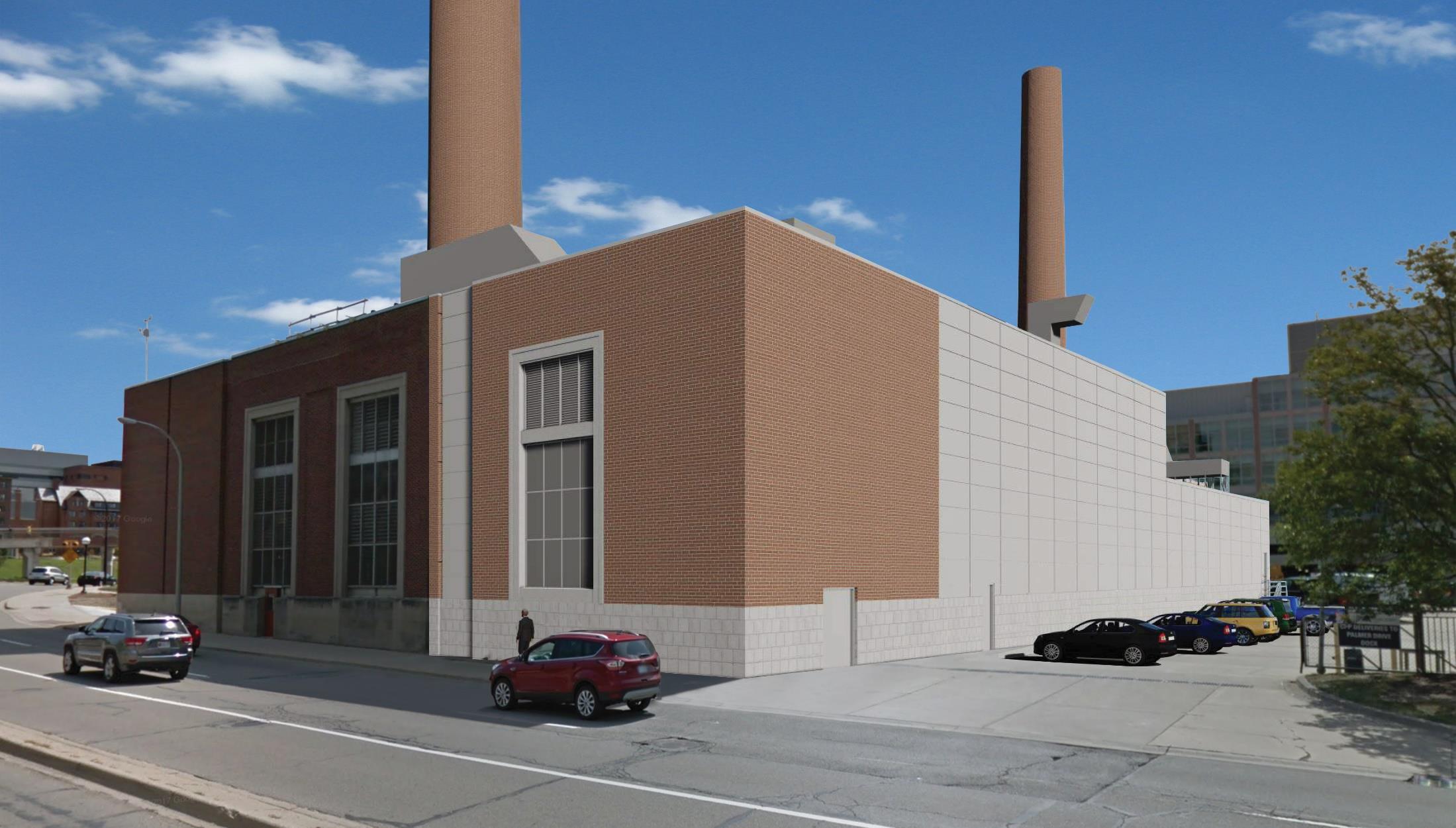The University of Michigan is expanding its Central Power Plant (CPP) to enhance power reliability and reduce greenhouse gas emissions (GHG), in accordance with a recommendation by the 2015 President’s Committee on Greenhouse Gas Reduction.
The Central Power Plant is a highly efficient, reliable on-campus source of heat and electricity that supports mission-critical functions across U-M, including life-saving research and the 24/7 demands of a major regional medical center.
The committee called for the addition of a 15-megawatt combustion turbine at the CPP to increase capacity to generate more energy on campus and reduce the amount of utility-generated, coal-based electricity U-M purchases.
A cumulative reduction of more than 400,000 metric tons of carbon can be expected within the first ten years of operation. This projection accounts for increased natural gas consumption, DTE Energy’s changing fuel mix, and indirect emissions such as methane leakage.
This project is part of the university’s transition toward carbon-free alternatives including simultaneously pursuing renewable energy and developing a plan to achieve carbon neutrality. In combination with a renewable energy purchase agreement announced in April 2019 and ongoing energy conservation efforts, emission reductions associated with the new turbine will help ensure the university meets its 2025 goal of reducing emissions for the Ann Arbor campus by 25 percent.
The project will incorporate all appropriate pollution control technologies, and the required air emissions permit for the project has been approved by the State of Michigan Department of Environmental Quality. We estimate a loss of approximately eight business and service parking spaces as a result of this project.

